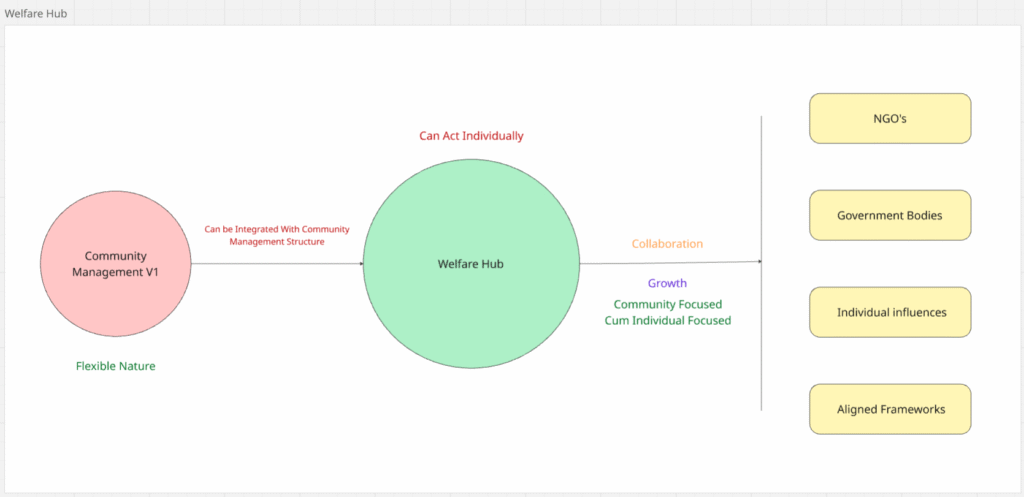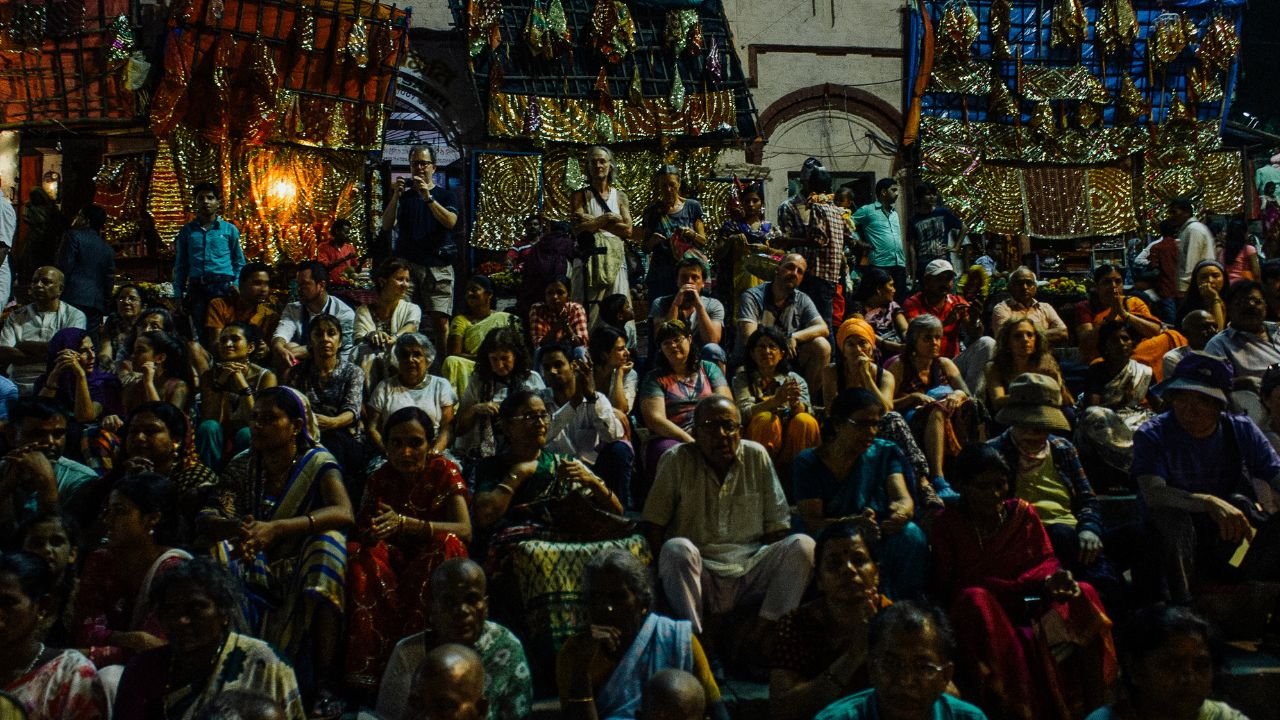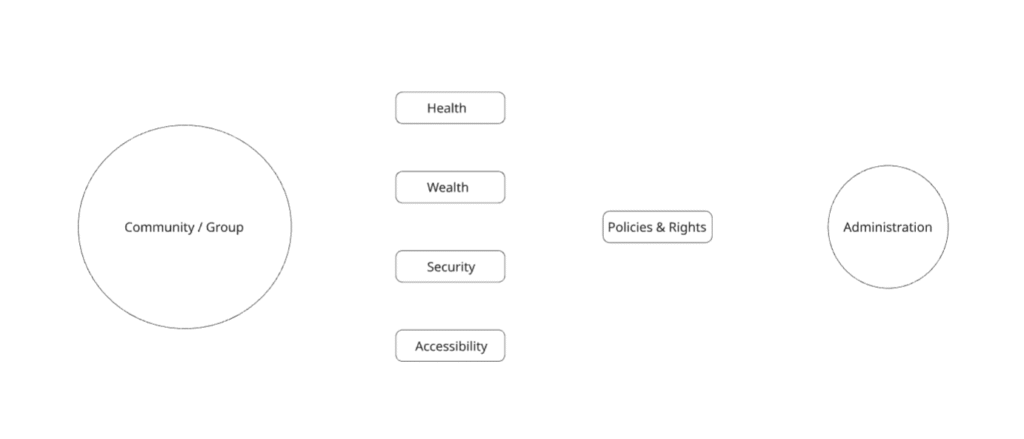- Self-Care
- Encourages daily habits that support physical, mental, and emotional wellbeing for a balanced life.
- Nutrition and hydration, Regular exercise, Quality sleep, Personal hygiene, Mental health care, Avoiding harmful habits, Stress management, Medical check-ups, Mindful routines, Teaching healthy habits
- Psychology & Self-Understanding
- Promotes emotional intelligence, self-reflection, and mental health awareness for personal growth.
- Know your emotions, Practice self-awareness, Seek help when needed, Build resilience, Manage stress, Positive self-talk, Empathy and compassion, Mindfulness, Healthy relationships, Support others
- Influences
- Helps individuals recognize and navigate external and internal influences to make conscious, independent choices.
- Identify key influencers, Understand peer pressure, Analyze media messages, Resist manipulation, Cultural awareness, Family impact, Social media effects, Advertising influence, Positive role models, Make your own choices
- Family & Parenting
- Strengthens family bonds through nurturing, respectful, and inclusive relationships, laying the foundation for healthy personal and social development.
- Parenting with empathy, Healthy communication, Child protection and rights, Shared responsibilities, Conflict resolution, Emotional support, Community involvement, Lifelong family growth, Gender equality at home, Elder care with dignity
- Relationship Management
- Builds healthy, respectful, and lasting relationships through communication, trust, and empathy.
- Communicate openly, Listen actively, Respect boundaries, Resolve conflicts, Be honest, Show appreciation, Support growth, Practice forgiveness, Maintain trust, Nurture connections
- Finance & Money
- Builds financial literacy and responsibility to ensure stability, independence, and informed decision-making.
- Budgeting and saving, Avoiding debt traps, Ethical spending, Tax awareness, Government schemes, Income generation, Consumer rights, Financial planning, Supporting family, Promoting local economy
- Human Rights & Law
- Educates individuals on their rights and responsibilities to promote justice, equality, and civic participation.
- Equality before law, Freedom of speech, Right to education, Protection from abuse, Legal awareness, Reporting injustice, Civic duties, Respect for others, Peaceful protest, Upholding justice
- Government Schemes & Social Support
- Increases awareness and access to public benefits, ensuring no one misses essential support.
- Know available schemes, Apply honestly, Share information, Skill development, Education support, Health benefits, Grievance redressal, Community awareness, Promote inclusion, Support peers
- Environmental & Animal Care
- Fosters respect for nature and all living beings, encouraging sustainable and compassionate living.
- Reduce, reuse & recycle, Conserve water and energy, Plant trees, Protect wildlife, Avoid pollution, Animal welfare, Eco-friendly choices, Clean surroundings, Climate awareness, Community conservation
- Systems & Patterns
- Teaches awareness of recurring behaviors and interconnected systems to enable smarter, sustainable decisions.
- Recognize life patterns, Understand cause and effect, Break negative cycles, See system connections, Learn from feedback, Apply systems thinking, Observe social patterns, Use knowledge for change, Make intentional choices, Think long-term
- Disaster Management
- Prepares individuals and communities to respond effectively and safely during emergencies.
- Emergency planning, First aid knowledge, Follow official alerts, Help vulnerable people, Prepare kits, Evacuation drills, Report hazards, Stay informed, Support recovery, Build resilience
- Spirituality
- Supports inner peace and ethical living through personal reflection, respecting all beliefs and paths.
- Respect all faiths, Practice compassion, Live with purpose, Non-violence, Gratitude and humility, Ethical values, Inner growth, Tolerance, Mindful living, Peaceful coexistence
Category: Uncategorized
-

Welfare Hub & Its Segments
-

Welfare Hub & The Community
The whole system here is about to be designed to be adaptive and community-centered, allowing for customization and flexibility in each pillar—governance, welfare, leadership, resource management—based on the unique needs and goals of the targeted community.

Custom Planning for Communities
Every community has different requirements, challenges, and aspirations. The system allows each pillar (leadership structure, rules, operational plans, engagement methods) to be tailored to best serve the specific demographics and context of the community involved.
This flexibility ensures maximum effectiveness and relevance.
The Resident / People Welfare Hub
The Welfare Hub operates both as a central system within the broader community structure and as an autonomous platform for supporting individuals.
Its main purpose is to foster awareness, personal growth, and collective empowerment among the members of the community.
The Welfare Hub is also the key conduit for collaboration—with NGOs, government agencies, activists, and other stakeholders—focusing on holistic community development and individual upliftment.
Collaboration and Independent Action
Through the Welfare Hub, partnerships are established with various external organizations to leverage expertise, resources, and support for the community.
Simultaneously, the Welfare Hub functions as a support system for individuals, enabling targeted interventions for personal advancement and well-being.
This dual approach ensures that community-wide progress and individual growth go hand in hand, leading to more sustainable and impactful outcomes.
In summary, the system’s strength lies in its adaptability—allowing for dynamic planning and integration of the Welfare Hub, which links community management with individual development through strategic collaborations. That’s correct. The system here describe is fundamentally built to be flexible—a custom planning framework, where every pillar (leadership, rules, operational plan, resource management) can be tailored to suit the unique realities and priorities of the targeted community.
Community-Centric Customization
Each community segment can have distinct rules, leadership models, operational methods, and engagement protocols.
This adaptability allows the system to be maximally relevant, effective, and sustainable for the group involved.
Role of the Welfare Hub
The people Welfare Hub acts as both a catalyst and a bridge, focusing primarily on community-wide awareness and holistic people development.
It can integrate with the larger governance structure or stand independently to focus on the growth and needs of individuals—for instance, skills development, education, or social support.
Collaboration and Growth
The Welfare Hub becomes the center for all partnerships—with NGOs, government departments, activists, and aligned organizations.
Its purpose is to coordinate resources and expertise, amplifying both individual empowerment and collective progress.
This model positions the hub as a proactive, collaborative system committed to maximizing well-being and opportunity for every member.
In essence, this approach enables communities to continuously upgrade and calibrate their systems, ensuring both collective welfare and individual advancement are always front and center. Yes, this approach recognizes that effective systems must be adapted to fit the needs and culture of each specific community. Every pillar—from leadership style to rules and operational plans—can be customized to best serve the people involved.
The Resident/People Welfare Hub operates both as a part of this customized system and independently as a standalone support mechanism. Its primary mission is to promote awareness and growth at both the individual and community level.
Within the Welfare Hub, collaboration with NGOs, government agencies, individual activists, and other supportive organizations creates a network for comprehensive growth and support. This not only addresses the community’s collective needs but also empowers individuals through partnerships and targeted initiatives.
-

Community & Management
If We Keenly Observe We can observe a Group or community in every human and thats where we feel we belongs to. A Family, A Classroom, A Religion, A Friends Gang etc..,
And These Communities might Share a Same Interest, same motive, or sometimes in the name of love!

Now As for the management different communities share different methods of management. But as in our case it more of like for example a group of 50 No’s a Leader Will be alloted i.e. A Classroom, A Street, A City and Much more and as the size increases the Administration level increases.
And As for the selection of these leads different groups follows different methods and by segmenting with our case we follows the voting method which is people vote the people who might they think would be a great fit for their society management! But Is that what happens is still a question for me.
Cause basically as a Emotional being we mostly takes that decision on the basis of Emotions. Like If I Belong to a Party or my Family members belongs to a party (A Community) I automatically being breed to believe that that party is where i belong (Not necessarily) while some getting external influence. Let’s not get into that topic much right now. The Topic Now is The Decision which is being taken on what basis. Is it being Taken Correctly. As they are Going to handle the Administration what kind of benefits we can expect.
Is the Decision being taken on the basis of Performance record of that candidate or is it taken on the basis of the emotional connection between them.
For Example, even in School Leader Selection, when it comes to voting, we often choose who is our friend (Close to) and the one who we will benefit from. As we start to rely on those who can support us (Singular or plural when it comes to Our Community), not the General Plural ( The View of All Students)
Topic Changed 🙂 But still we have seen a small bit about what is A Community, how the community’s administration is being selected, A Bit on decision-making (emotional or logical), and Some Examples. Now let’s have a Look at the Structure that is Being Shared on this Community Management and the Current Improvements and Other Aspects.
-

The Questions Within Me
What is this really about?
In our everyday lives, we face countless questions. Some of us ask them aloud, others keep them inside, unsure or hesitant to voice them. And then, there are those silent thoughts that don’t even form into proper questions — just feelings, confusions, or quiet observations.These questions often revolve around existence itself. Why do we exist? Why are we the way we are? Why does partiality exist — the division between privilege and struggle, between love and hate? Who am I? What am I doing here? These are existential questions that arise as we navigate through survival in a busy, unequal world.
Some people are born into abundance — with all the resources they need and more. Others, by contrast, struggle every day for food, shelter, and basic necessities. Then there are those who live somewhere in between. Life seems to operate on a kind of unspoken rule — perhaps the “survival of the fittest.” But isn’t that where the unfairness begins? Why do some have so much from birth, while others suffer endlessly?
Why this inequality? Why the suffering? Why are blessings distributed so unevenly? If abundant resources exist, why are they concentrated in the hands of a few? These aren’t just questions about privilege — they are questions about fairness, purpose, and the design of life itself.
Maybe this is just how life is — raw, uncontrollable, and unfair. But must it remain that way?
Is there a solution — something we can understand or influence? If control is possible, then who holds it now? And if someone or something is already in control, why does the system work as it does? What is the intent behind it all? And if no one is in control, how do we take collective responsibility to make life better for everyone?In the end, it all comes down to this: we have endless “whys” and “whats” — but our true challenge lies in discovering the deeper “how.”
As this journey begins with lots of questions within me and with the intent to find or optimize the existential systems that can improve the life of everyone and everything in this existence.